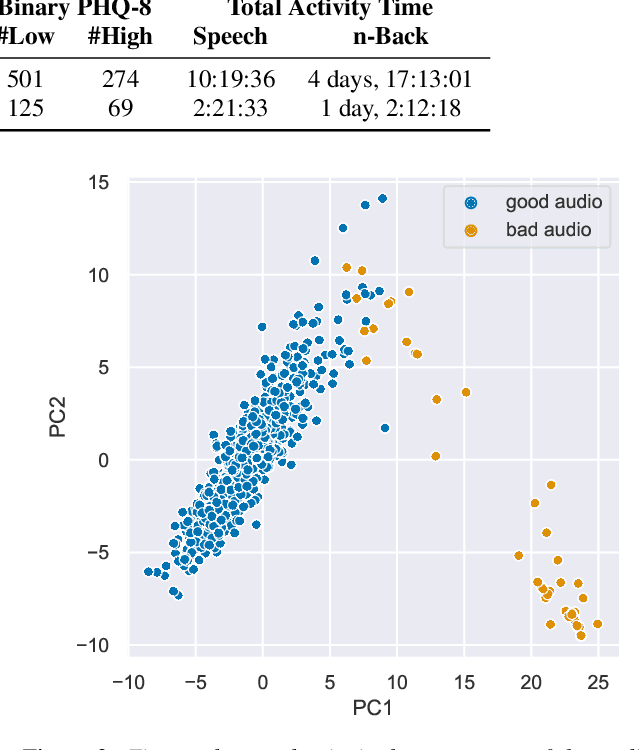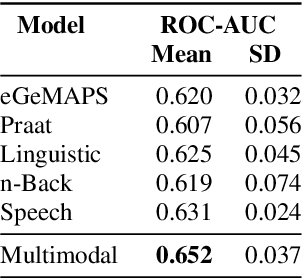Speech and the n-Back task as a lens into depression. How combining both may allow us to isolate different core symptoms of depression
Paper and Code
Mar 30, 2022



Embedded in any speech signal is a rich combination of cognitive, neuromuscular and physiological information. This richness makes speech a powerful signal in relation to a range of different health conditions, including major depressive disorders (MDD). One pivotal issue in speech-depression research is the assumption that depressive severity is the dominant measurable effect. However, given the heterogeneous clinical profile of MDD, it may actually be the case that speech alterations are more strongly associated with subsets of key depression symptoms. This paper presents strong evidence in support of this argument. First, we present a novel large, cross-sectional, multi-modal dataset collected at Thymia. We then present a set of machine learning experiments that demonstrate that combining speech with features from an n-Back working memory assessment improves classifier performance when predicting the popular eight-item Patient Health Questionnaire depression scale (PHQ-8). Finally, we present a set of experiments that highlight the association between different speech and n-Back markers at the PHQ-8 item level. Specifically, we observe that somatic and psychomotor symptoms are more strongly associated with n-Back performance scores, whilst the other items: anhedonia, depressed mood, change in appetite, feelings of worthlessness and trouble concentrating are more strongly associated with speech changes.
 Add to Chrome
Add to Chrome Add to Firefox
Add to Firefox Add to Edge
Add to Edge